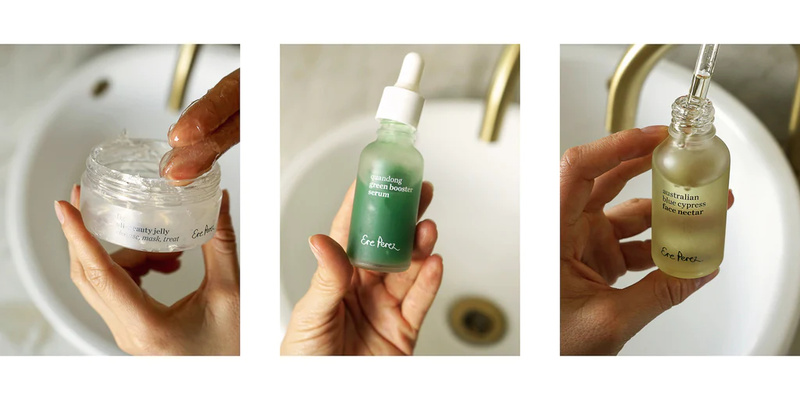Discovering the Culprits Behind Red Nose Causes
Dec 17, 2023 By Nancy Miller
More than a mere cosmetic concern, a red nose may signal underlying health issues. Common instances of occasional nasal redness exist, yet persistent and prolonged discoloration warrants attention. This article plunges into the potential causes of this condition. It also investigates successful treatments and remedies for its alleviation. To tailor interventions and enhance overall well-being, you must crucially understand the root causes.
Environmental Factors Contributing to Nasal Redness
Temperature extremes, allergens, and other environmental factors significantly induce redness in the nose. These elements can harm the skin and blood vessels, consequently, visible redness emerges.
Temperature Extremes:
Extreme temperatures whether cold or scorching heat, can stress the delicate nasal skin. This may trigger redness due to blood vessels responding to temperature fluctuations.
Allergens and Irritants:
Pollen, dust, or certain chemicals can irritate the nasal skin as allergens. This irritation often leads to redness. To manage and prevent a red nose. One must identify these triggers, minimizing exposure becomes crucial.
Underlying Medical Conditions Linked to Red Nose
Redness in the nose can signal potential health concerns that warrant attention, as several medical conditions may manifest this way.
Rosacea:
Rosacea, a chronic skin condition, can induce unrelenting redness in the nose. To effectively manage this ailment, it is imperative to comprehend its nature and seek suitable medical intervention.
Dermatitis:
Identifying the specific type of dermatitis is a crucial step for targeted treatment. It is possible as nasal dermatitis presents itself with skin inflammation that can cause redness.
Lupus:
Redness of the nose, in some cases, may signal autoimmune conditions such as lupus. Therefore, consulting a healthcare professional for an exhaustive evaluation becomes essential. This ensures not only accurate diagnosis but also effective management, both crucial components in combating these complex ailments.
Additional Causes of Red Nose
Exploring additional triggers that may lead to this noticeable symptom is crucial, as environmental factors and underlying medical conditions significantly contribute to a red nose.
- Excessive Alcohol Consumption:
Excessive alcohol consumption can dilate blood vessels, including those in the nose. This leads to temporary redness. Persistent redness and skin damage may result from chronic use of alcohol.

- Smoking and Tobacco Use
Numerous harmful chemicals in tobacco smoke can irritate and inflame the nasal skin. The act of smoking may induce chronic redness, further contributing to a plethora of skin-related issues.
- Side Effects of Medications:
Be cognizant of potential side effects, including skin redness or irritation, associated with certain medications like topical steroids or nasal sprays. If any concerns emerge, consult healthcare professionals promptly.
- Hormonal Changes:
Particularly during pregnancy or menopause, hormonal level fluctuations can influence blood flow and skin sensitivity. This may potentially lead to redness in the nose.
- Infections:
Impetigo or cold sores, which are bacterial or viral infections, can induce redness in the nose. Resolving associated skin issues hinges on the critical treatment of underlying infection.
- Chronic Irritant Exposure:
Consistently encountering harsh chemicals, pollutants, or irritants in your workplace or home environment can contribute to chronic redness. Beneficial protective measures include wearing a mask.
- Genetic Predisposition:
A genetic predisposition to skin conditions, such as redness in the nose, may exist for some individuals. Insights into potential genetic factors can emerge from an understanding of family medical history.
Holistic Approaches to Red Nose Treatment
Conventional treatments do not address the issue of a red nose completely. However, adopting holistic approaches that focus on overall well-being may significantly contribute to long-term relief from this condition.
- Balanced Diet: Supporting skin health necessitates the maintenance of a diet rich in antioxidants, vitamins, and minerals. Fruits, vegetables, and omega-3 fatty acids particularly contribute to the overall resilience of our skin.
- Hydration: Maintaining adequate hydration is crucial to skin health. It bolsters skin elasticity and mitigates dryness, thus diminishing the chances of redness. Drinking sufficient water facilitates these benefits.
- Stress Management: Chronic stress exacerbates skin conditions, including redness. However, the practice of stress-reducing techniques such as meditation, yoga, or mindfulness positively influences skin health.
- Regular Exercise: Promoting blood circulation is vital for skin health. Regular incorporation of exercise into a routine contributes not only to overall well-being but also reduces the likelihood of redness.
- Gentle Skincare Routine: Individuals with sensitive skin should particularly prioritize adopting a gentle skincare routine that incorporates mild cleansers and moisturizers. This not only prevents irritation but also soothes redness. The avoidance of harsh products is imperative for them.
Remedies for Red Nose: Over-the-Counter and Natural Approaches
Various remedies, both conventional and natural, can provide relief and promote overall skin health when one addresses a red nose.
Over-the-Counter Topical Treatments:
Consulting with a dermatologist ensures the selection of creams and ointments specifically those containing anti-inflammatory ingredients. These products can effectively reduce redness. This approach is tailored to individual skin types, thus guaranteeing optimal results.
Cold Compresses:
Constricting blood vessels, reducing redness, and providing immediate relief is a benefits of applying cold compresses to the affected area. Hence, incorporating this simple remedy into one's skincare routine can prove effective.
Natural Remedies:
Aloe vera, chamomile, and green tea are natural ingredients possessing anti-inflammatory properties. Incorporating these into skincare routines or using products that contain them can not only soothe redness but also promote optimal skin health.
Lifestyle Changes for Red Nose Prevention
The adoption of specific lifestyle changes: this is a proactive measure, not only to prevent the onset of red nose but also to maintain optimal skin health.
Sun Protection: To prevent sun-induced skin damage and redness, one should regularly use sunscreen on the nose. Choose products with broad-spectrum protection to shield your skin from harmful UV rays.
Humidification: To prevent skin dryness and reduce the likelihood of redness, one must maintain optimal humidity levels in indoor environments. Achieving and sustaining adequate moisture levels is a task effectively accomplished with the use of humidifiers. They serve as indispensable tools for this purpose.
Allergen Management: Crucially preventing nasal redness necessitates the identification and management of environmental allergens, whether in one's home or workplace. Essential steps to take include implementing regular cleaning measures. Moreover, minimizing exposure to acknowledged allergens is paramount: these actions can significantly mitigate symptoms.
Seeking Professional Guidance for Persistent Red Nose
Despite adopting preventive measures and remedies, one must seek professional medical advice if the redness in the nose persists.
- Dermatologist Consultation:
The dermatologist can evaluate the underlying causes of redness, recommending targeted treatments such as prescription medications or procedures.
- Allergist Evaluation:
Consulting an allergist for allergy-related cases can assist in the identification of specific triggers. Moreover, it aids in the development of a personalized plan to manage nasal redness.
- Autoimmune Specialist:
Consulting a specialist in autoimmune diseases, when indications of such conditions arise, guarantees not only a comprehensive evaluation but also ensures appropriate management.
Conclusion
Understanding the causes of red nose is crucial for effective treatment and prevention. Environmental factors, underlying medical conditions, or lifestyle choices may be linked to it.
A tailored approach, incorporating remedies, making lifestyle changes, and seeking professional guidance when necessary empower individuals in managing and preventing redness, thus promoting optimal skin health.








